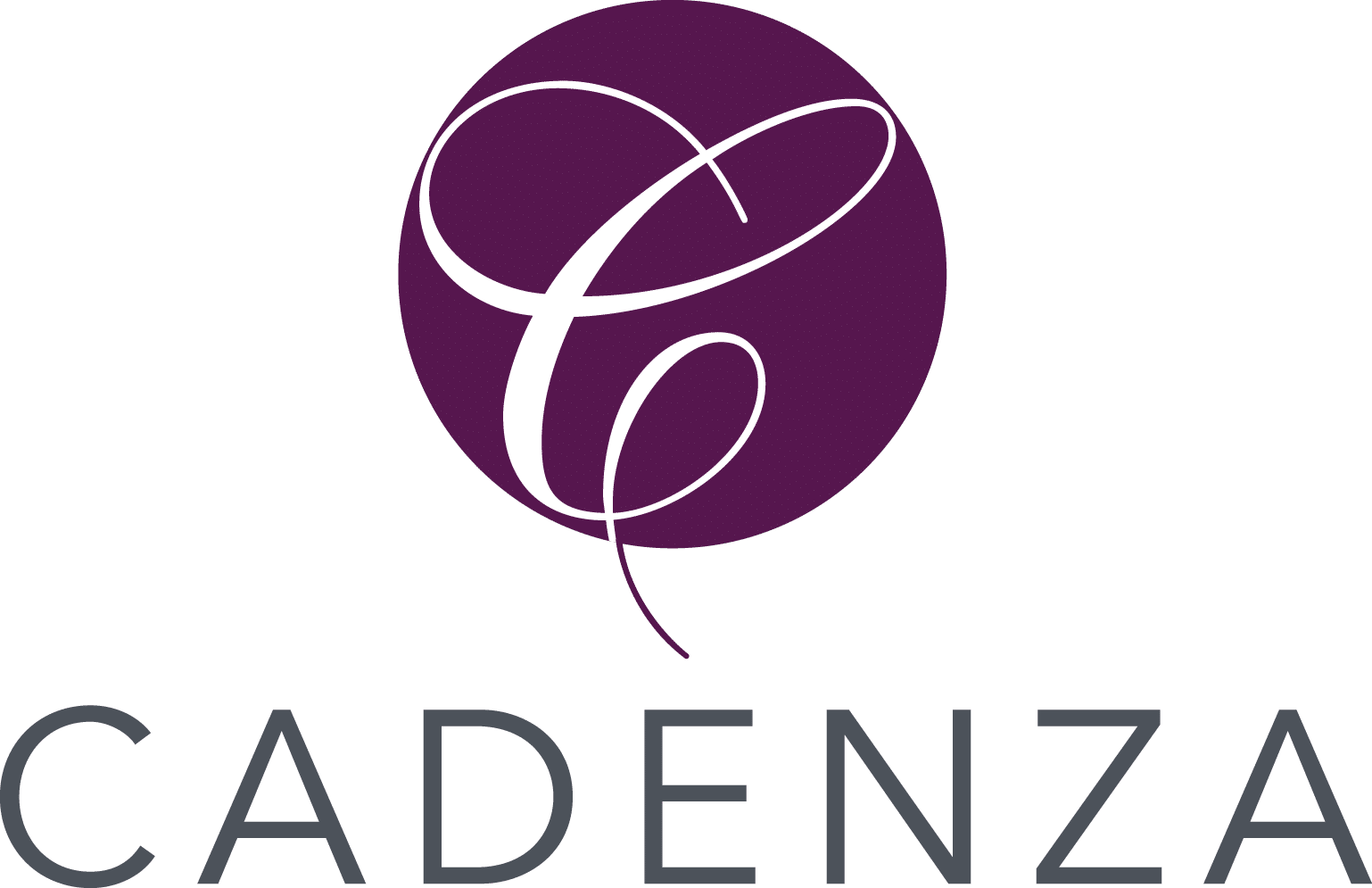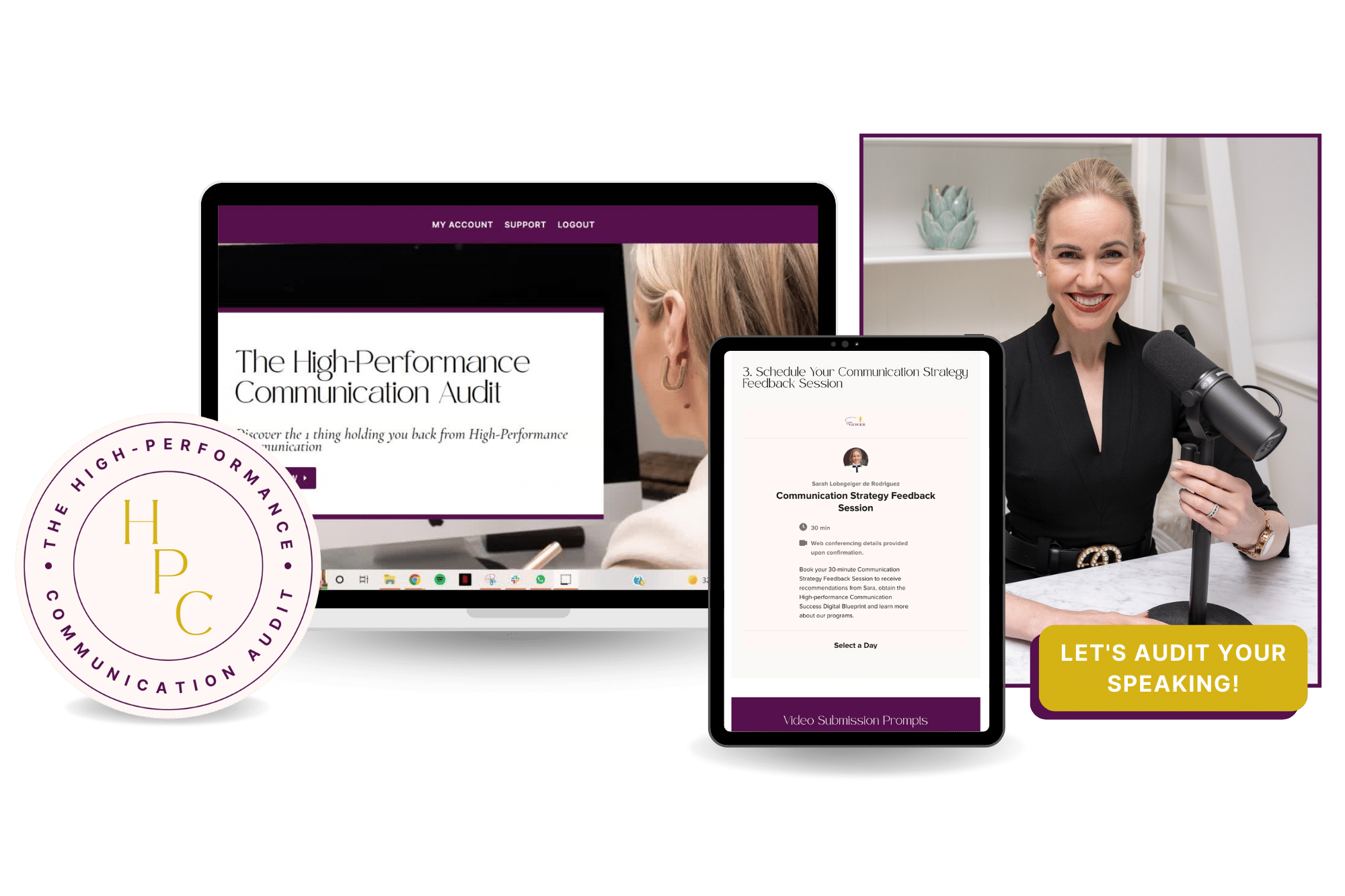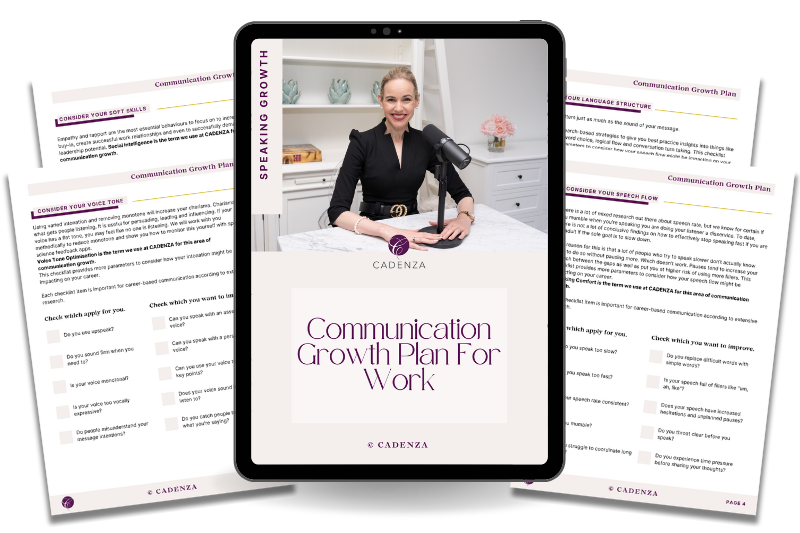Career Development
It’s up to you: What to do when no one cares about your Career Development

Emotions and perceptions influence your career development decisions.
You’ll be less likely to progress your career without a tactical approach to managing your attitudes to make the best career decisions and seek the right professional development opportunities.
This article is best digested in 3 parts:
You might want to bookmark this page to refer back to later – because it could take more than one sitting!
- Check our recommendations on research informed tactics to benefit your career progress below.
- Sign up for my FREE masterclass – Take your insights further by signing up for my FREE Masterclass, How to Look & Feel Confident at Work, without guessing what it takes.
- Audit your speaking – If you’ve always wanted to charm, enthral and capture your listener with influential public speaking, presentations and media appearances, this is your opportunity to finally master new techniques and overcome past presenting setbacks. Start the process with our High-Performance Communication Audit.
Optimise your Voice Tone, Boost Your Delivery & Express Yourself Better.
#1. Develop your Internal Locus of Control
If you feel like company leadership neglects your career development, consider this. The person who is most responsible for your career success is you. The reality is that you’re the only one who can achieve your goal. So take responsibility. Don’t wait for someone to elevate you; they’re too busy focusing on their own career path or business goals. An internal locus of control differentiates the big fish from the feeders at the bottom of the professional seabed, in the dark and out of sight.
Research shows that professionals who ascend faster in their careers have a more developed internal locus of control and are more likely to recognise opportunities. Here’s what you want to focus on differentiating.
Internal Locus of Control: Develop this!
People with internal locus of control tend to expect reinforcements (1) to be the consequences of their own efforts or behaviour.
Focusing on how your efforts and behaviour to shape your professional profile is most likely to make you more alert to opportunities and accountable for progress.
External Locus of Control: Monitor this and beware of excuses
People with an external locus of control expect career path outcomes to be the consequences of chance, luck, fate, or the actions of powerful others. This way of thinking tends to make you overlook opportunities and waste time waiting for others to decide your career path and future since it results in a negative personal accountability balance.
Now that we’ve established that you’re the captain of your career path let’s consider some other critical features that will determine your professional success and career development.
Taking independent ownership of your career path and the impact is more likely to correlate with measurable professional success.
Corporate officer and advisor at Stripe (the world’s #1 payment processor for e-comm), as well as author of the impressive book- “Scaling People- Tactics for Management and Company Building”, Claire Hughes Johnson, cautions the career ambitious.
“No one knows what is inside your head, heart and gut, the way you do, and be your own career coach. I’m always surprised when someone is waiting for their manager or some other exogenous force to tap them on the shoulder with an opportunity or idea for their career.”
CLAIRE HUGHES JOHNSON
That aside, of course, some leaders genuinely care about shaping up their team for new challenges and opportunities. We frequently converse with such leaders in providing elite communication training to their teams, but this is not the norm.
#2. Are you in the HARD or SOFT stage?
Dongping Zhao, started with a Master of Finance at the highly competitive London Business School. With its acceptance rate of only 20%, you have to be both savvy and smart to get in. Commencing at DELL as a product marketing director for Greater China and Korea in June 2004, within four years he was head of online sales and operation at google covering greater china. Some four years later, he ascended to President of Anker, the massive power charging supplier. Valued at 1.2B, Zhao Dongping is an interesting case example.
He states:
“The first level [of your career] is hard skills, the second level is soft skills, and the third level is the most challenging level: how you show up emotionally, how you keep being a champion and make everything possible.”
DONGPING ZHAO
To achieve career progress you need to be mindful of this set of steps.
HARD SKILLS: Develop your technical skills. Leave no stone unturned. Do not remain here. Technical proficiency will make you appear competent in workflow tasks but if you fail to recognise when to move to the next step of professional development you will remain coding in the corner.
SOFT SKILLS: Investing in your soft skills will provide the most rapid ascension to your career path possible. Here are some tools you might like to consider fromCadenza to assist you.
The Communication Growth Plan for Work
Today I’m going to share the perfect tool to help you develop a plan for your personal growth at work.
The Communication Growth Plan for Work will help you focus on the core areas of your communication that are scalable & changeable, so you get more clarity on meaningful goals to enhance your communication impact and professional growth.
Confidence and progress at work pivot around your ability to communicate effectively, which always takes strategy.
Here’s what you get if you take me up on this bonus resource:
✅ Bonus 7-page resource that assists you in getting started on an evaluation of your professional communication goals
✅ Discover what high-performance communication activities you need to get ahead professionally
✅ Explore communication growth goals across 7 key areas- speech, voice, message structure, soft skills and delivery.
“Communication is your ticket to success, if you pay attention and learn to do it effectively.”
LEO GOLD
If you do not yet have a personal development plan for your career path, because your organisation did not assist you in making one, activate your internal locus of control by checking this article to get started over on our website: Why Your Career Communication Needs a Professional Development Plan – Learn how to build your personalised professional development plan so you can uplevel your communication at work.
Be a Proactive Personality
Certain personality types appear to achieve better odds regarding professional development. Proactive Personalities have been found to report increased success when it comes to their…
- Desired salaries
- Promotions
- And even career satisfaction
(Seibert, Crant and Kraimer, 1999)
Let’s consider the key ingredients of proactive personality types. All of us will show varied capabilities to take action and influence our environment. But the proactive personalities show the following behaviours:
- The ability to identify opportunities and act on them
- Initiative and perseverance to bring about change
- Problem-solving skills
- Accountability for their personal impact
People behaving this way concerning their career path or business will achieve notable results.
In contrast, passive and reactive employees tend to get stuck, adapting to their “imposed circumstances” rather than changing them.
Are you struggling to reinforce your leadership potential? Your communication style might need some improvement so that you can position yourself more proactively.
Did you know that your communication style can make, shape or totally sabotage your ability to lead your team or even get into a leadership position in the first place.
Gaining a leadership position requires a strong communication style. Not only will it help you to lead a team, but it will get you into leadership in the first place.
At Cadenza, we help professionals showcase their expertise through their communication style so they can reinforce their leadership potential using concrete, proven tactics.
We have designed a live class to get you started. You will learn how to increase your executive presence as well as tools and techniques to gain traction as an effective leader.
You’ll discover…
- How to assess your communication style using a robust and validated test
- How to define communication style so that you can be more precise and alert to your own behaviours and other people’s.
- Which communication style traits are positive predictors of leadership success.
- The Key Leadership Reputation Principles you need to focus on when developing your career communication.
- The magic formula for building relationships through effective professional communication so that you can build iron-clad rapport with all personalities so that you feel comfortable and influential with everyone.
An organisation’s workings and future may play a loop in your mind but don’t expect your key players to know the extent of the dreams they need to actualise if you don’t cast the vision when it relates to your career development.
At Cadenza, we can assist you in determining your professional positioning, hook points and communication skills alongside vital performance strategies to increase your chance of charismatic delivery using social intelligence structures and tactical charisma training. We can assist you with refining your speech, storytelling and tone to achieve a transformational image that encourages professional success.
Did you enjoy this post? Make sure to subscribe to our YouTube channel to get more content to increase your communication skills!
About the Author
Dr. Sarah Lobegeiger de Rodriguez is a Keynote Speaker, Executive Speaking Coach, and Opera Singer who likes to play with words, sounds, and your impact.
Her academic background is in Music Performance, Communication Science and Speech & Language Pathology. She assists executive communication clients all over the world as a communication consultant with strong expertise in CEO, Founder and Entrepreneur communication strategies.
Connect with Sarah on LinkedIn.
References
-
Al-Bahrani, M., et al. (2021). “A path analysis of effects of the career locus of control dimensions and career decision self-efficacy on career aspiration.” International Journal of Adolescence and Youth 26(1): 367-375.
-
Duru, H., & Söner, O. (2024). The Relationship Between Career Decision-Making Self-Efficacy and Emotional Intelligence, Career Optimism, Locus of Control and Proactive Personality: A Meta-analysis Study. Canadian Journal of Career Development, 23(1), 6-32.
-
Hughes Johnson, C. (2022). Scaling People: Tactics for Management and Company Building. Stripe Press
-
Seibert, S., et al. (1999). “Proactive Personality and Career Success.” The Journal of applied psychology 84: 416-427.
Level 14, 380 St Kilda Road, Melbourne, 3004
Privacy Policy
Terms & Conditions
Position Statement on Racism






